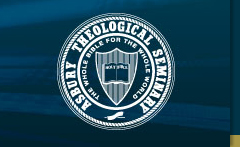Files
Download Full Text (255 KB)
Summary
It is anticipated that by the end of the course students will have: l. Grown in their knowledge and love for God through the study of Christian theology. (It is expected that all dimensions of the course - the set reading, the assignments and the interactions between students and instructor, will contribute to this.) 2. Been introduced to all the major areas in the study of Christian theology. (This will be accomplished primarily through the systematic reading of McGrath’s ‘Christian Theology’. The other texts and supplemental reading will emphasize and reinforce certain aspects of that overall presentation.) 3. Grasped the vital connections between theology, the Christian life and the practice of ministry. (Brian Edgar’s ‘The Message of the Trinity’ and Greg Boyd and Paul Eddy’s ‘Across DO501X1SP08 - Page 3 of 14 the Spectrum’ relate the theological themes being studied to ministry issues. Assignments and class interaction will also enhance this aspect of the course.) 4. Established a basic understanding of the classical tradition of systematic theology, engaged with contemporary forms of theology and studied the doctrinal emphases of Wesleyan theology. (Steve Harper’s ‘The Way to Heaven: the gospel according to John Wesley’ engages the student with Wesleyan theology. ‘Across the Spectrum’ also addresses specific and much debated issues relating to Wesleyan theology and ‘Christian Theology’ places certain Wesleyan themes in a broader reformation context.) 5. Examined, evaluated and used a reasonable range of literature related to the study of Christian theology. (The set texts themselves cover a good range of historical and contemporary writing and the major paper will give opportunity for more specialized reading in one specific area.) 6. Used theological literature reflecting the global and historical character of theology as well as the multi-ethnic and cross-cultural nature of ministry. (‘The Christian Theology Reader’ is required reading and it provides a broad range of original, historical sources in an accessible manner. Supplemental reading will address multi-cultural perspectives.) 7. Developed a working theological vocabulary, a knowledge of theological themes and a theological approach that will support further study in theology and related disciplines. (The reading, the interaction and the assignments will afford the student the opportunity to develop their theological skills. The end result requires the student to integrate the material into their own theological mind-set and their approach to ministry).
Publication Date
January 2008
Publisher
Asbury Theological Seminary
Keywords
40, XL, Spring, DO, 501, Basic, Christian, Doctrine, SP08, DO501, Doctrine, Basic, Christian
Language
English

